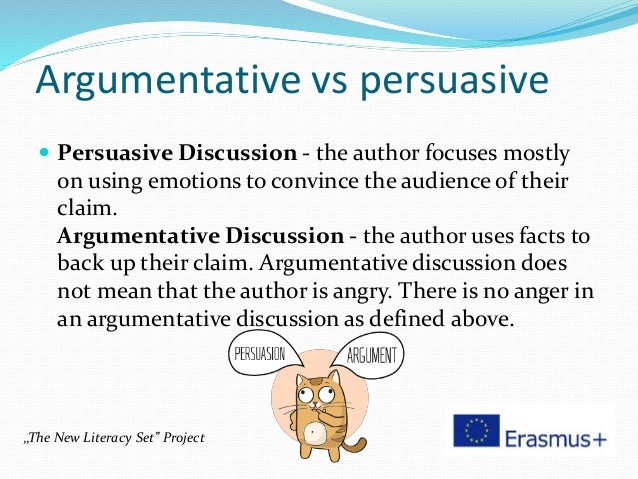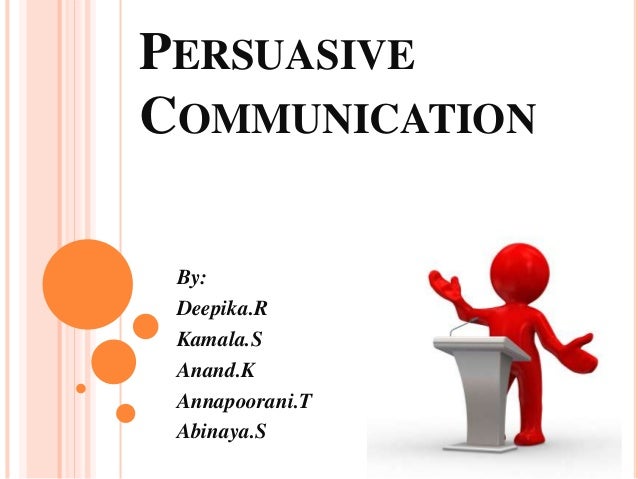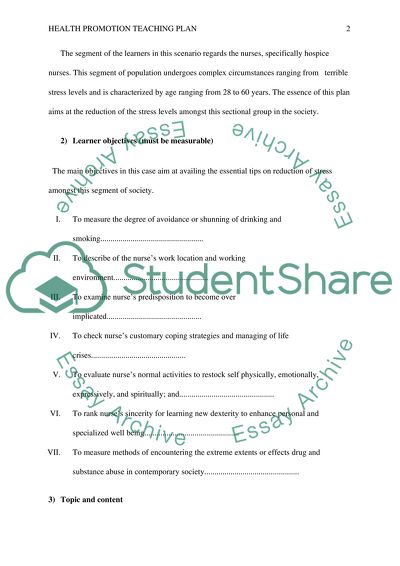
INFORMATIVE, PERSUASIVE, AND ARGUMENTATIVE COMMUNICATION Tips for informative speaking: • Analyze the audience. What can the audience be reasonably expected to know? • Use appropriate language · Informative presentations use this concept less often, although a trainer could be training people to overcome a problem such as poor customer service or even poor sales. Benefits: Similarly, in a persuasive presentation, you need to outline the benefits of the solution, what the audience will gain from buying, contributing, or approving. In an At some point in your business career, you will be called upon to teach someone something. It may be a customer, coworker, or supervisor, and in each case, you are performing an informative speech. It is distinct from a sales speech, or persuasive speech, in that your goal is to communicate the information so that your listener understands
Unit Informative and Persuasive Presentations – Communication @ Work
Kat has a Master of Science in Organizational Leadership and Management and teaches Business courses. Everyone knows what a speech is like. A person stands at the front of the room and begins to speak. Then you sit down for an hour, wondering when the speaker will finish and allow you to get out of the uncomfortable fold-out chair, right? Not necessarily; speeches are used more often than you may be aware, informative persuasive and argumentative communication.
Some speeches may, in fact, last those agonizing 52 minutes; however, some speeches last only moments. Remember when informative persuasive and argumentative communication dean of your college got up to introduce the speaker? That was a speech, too. I'm sure that one was much more brief, informative persuasive and argumentative communication. There are three main types of speeches that you likely see on a regular basis. Let's take a look at each of those speeches now. As a member, you'll also get unlimited access to over 84, lessons in math, English, science, history, and more.
Plus, get practice tests, quizzes, and personalized coaching to help you succeed. Get unlimited access to over 84, lessons. Already registered? Log in here for access. Log in or sign up to add this lesson to a Custom Course. Log in or Sign up. Imagine sitting in the audience of a large lecture hall listening to your professor talk about the theory of relativity, informative persuasive and argumentative communication. It may sound like confusing words to many, but what he is really doing is giving an informational speech.
This kind of speech is delivered mostly to convey information to the audience about something they don't already know. There are a few types of informational speeches:.
When a public speaker talks about things that can inspire your senses, like touch, smell or feel, it is a speech about objects and involves talking about things in the sensory and physical world. Maybe he is talking about the way a spider looks or the way freshly snipped herbs smell, informative persuasive and argumentative communication. It may even be a speech about your favorite president. Either way, the speech is written to appeal to the senses.
Some speeches are written to inform people of a current or past happening. This is a speech about an eventand it is meant to bring people up to speed on things that have, are or will be going on in the world. Upon taking the presidential oath, a newly elected president will give his Inaugural Address, where he tells the citizens of the United States his plans for his term.
This speech is done to get the informative persuasive and argumentative communication excited about the prospect of a new president. A cooking demonstration is a good example of a speech about processes because it instructs the audience on how to do something through a process. So, the next time you happen to pass a gourmet store and see a chef showing onlookers how to make homemade pasta, know you are listening to a speech designed to show you how to do something step by step.
There are speeches that are a bit more abstract than a current event or even a how-to talk. Some are speeches about conceptswritten about theoretical ideas and notions, informative persuasive and argumentative communication, like world peace, freedom or love. Unlike the other types of informative speeches, this type of speech is intangible. As with any of the informative speeches, they should be written as topical or by topicchronological or by date or spatial or how things physically fit together.
A writer may use a topical organization if writing about types of wines. The writer may start with a informative persuasive and argumentative communication type, then go into region and then grape varieties.
Chronological organization would most likely be used when writing about an event, such as events that led up to the Civil Rights Act. When writing about things to do in Miami Beach, a writer may break down the area to a few important sightseeing locales and then list important places of interest for each. Not all speeches are informative. For instance, persuasive speech writing is a little different. So, you get roped into attending a How to Get Rich in Real Estate seminar. After a few minutes, you realize that the lecture is less about real estate and more about buying the speaker's set of CDs and books on tape.
Likely, this was a persuasive speechinformative persuasive and argumentative communication, and it is designed to change a group's thinking or behavior. This type of speech is often used in sales and advertising to get people to buy things. A persuasive speech could be an emotional appealinformative persuasive and argumentative communication, where the speaker attempts to elicit sensitivity from the group, or it could be a logical appealwhere the speaker wants the audience to rely on their own reasoning to make a decision.
A speech about hunger in America may pull at your heartstrings and make you quickly dial a number to send money. That is a purely emotional decision based on the persuasive talk of the speaker. Choosing a good acne cream based on product facts and before and after visuals might muster up some attention because the audience is asked to use logic to decide whether the product works.
If the visuals show a clearer face after use, soundness may say the product is good. Of course, some speeches are not meant to change anything. They are informative persuasive and argumentative communication just for fun, and that is when special occasion speeches are used. So, you're the best man at your friend's wedding. That means you have to arrange the bachelor party, buy a tuxedo and worst of all - give a speech. With a lump in your throat and a shaky hand, you begin talking.
What you are doing is giving a special occasion speechand it is generally done to toast a celebration or commemorate some special event. This type of speech usually does not require major research, and there is no formal style of execution. It is done as a means of rejoicing at a fun event.
The only rule to a special occasion speech is the time limit. Because it is usually done at a party or festive get together, keep it brief, and the audience will most likely refrain from throwing things at you.
To wrap it up, there are essentially three types of speeches public speakers use to influence their audience. The informative speech conveys information, the persuasive speech is a call to action and the special occasion speech is given to commemorate a person or event.
The informative speech is the kind of speech delivered mostly to convey information to the audience. The speech can be about objects or people, events in the world, on processes or even about conceptslike music appreciation. With any of informative persuasive and argumentative communication informative speeches, they should be written as topicalchronological or spatial.
The persuasive speech is designed to change a group's thinking or behavior. It is designed to get an emotional or logical response from the audience, informative persuasive and argumentative communication.
The special occasion speech is the most fun and is done to toast a celebration or commemorate some special event. Keep in mind, this type of speech is given at a fun event and shouldn't last too long. To unlock this lesson you must be a Study. com Member. Create your account.
Already a member? Log In. for Teachers for Schools for Working Scholars® for College Credit. Log in. Sign Up. for Working Scholars® for College Credit. Find Courses by Subject Science Math Business Psychology History English Social Science Humanities Spanish Professional Development. By Education Level College High School Middle School.
Test Prep Popular Tests… Popular Tests. SAT ACT TOEFL GMAT GRE CLEP GED ASVAB Real Estate. HESI TEAS NCLEX PAX RN CNE. AP ASCP ASWB Accuplacer CHSPE CTEL DSST Finance FSA HSPT ISEE MBLEx NCE PERT PHR SHSAT TASC TECEP UExcel. Explore over 4, video courses. Career Planning All Career Planning Careers and Occupations Career and Education Roadmaps Job Outlook and Salary Information.
Schools By Degree Level All Schools By Degree Level High School Diplomas Associate Degrees Bachelors Degrees Certificate Programs Masters Degrees Doctorate Degrees Graduate Certificate Programs. Transfer Credit All Transfer Credit Find Your School College Courses for Credit Transferring Credit How It Works. Lesson Transcript. Instructor: Kat Kadian-Baumeyer Show bio Kat has a Master of Science in Organizational Leadership and Management and teaches Business courses.
There are essentially three types of speeches public speakers use to influence their audience. In this lesson, we'll look at those three types of speeches and how each serves a different purpose. An error occurred trying informative persuasive and argumentative communication load this video. Try refreshing the page, or contact customer support. You must c C reate an account to continue watching. Informative persuasive and argumentative communication to view this lesson Are you a student or a teacher?
I am a student I am a teacher. Create Your Account To Continue Watching.
Communication Purposes (Informative, Persuasive, and Argumentative ) Debate.
, time: 11:41The difference between a persuasive and an informative presentation

· Informative presentations use this concept less often, although a trainer could be training people to overcome a problem such as poor customer service or even poor sales. Benefits: Similarly, in a persuasive presentation, you need to outline the benefits of the solution, what the audience will gain from buying, contributing, or approving. In an INFORMATIVE, PERSUASIVE, AND ARGUMENTATIVE COMMUNICATION Tips for informative speaking: • Analyze the audience. What can the audience be reasonably expected to know? • Use appropriate language Writing is an important form of communication. Over the years, developing writers become good ones as they have embraced a clear understanding of the different types of writing techniques and the specific purpose each one serves. Read the speech bubbles below. Decide to which of them uses writing techniques in the following types: informative, persuasive, and argumentative

No comments:
Post a Comment